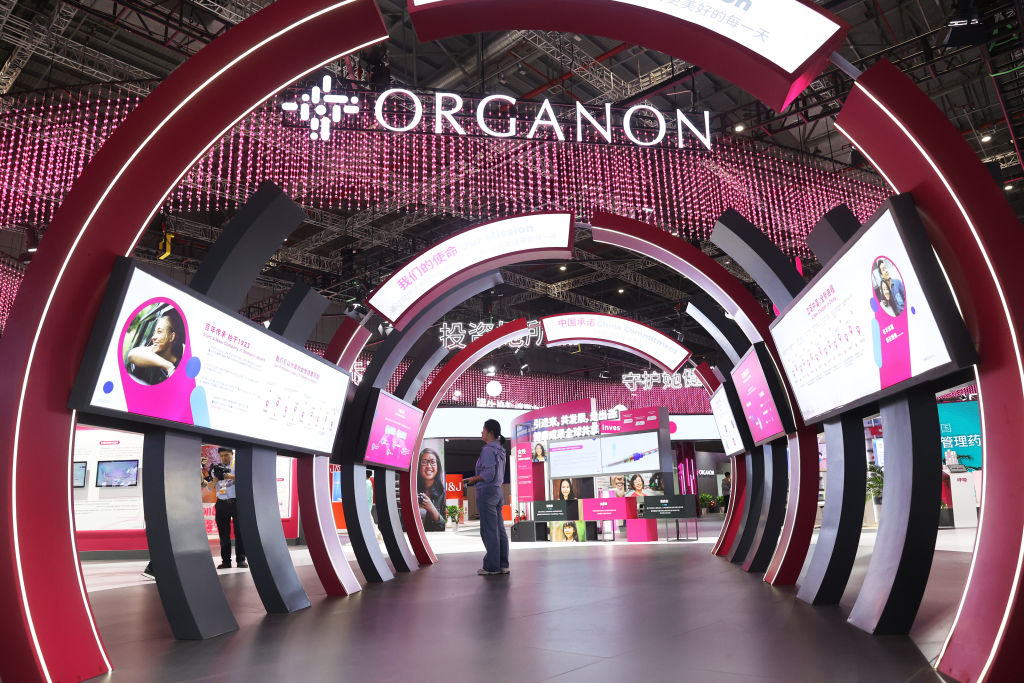
An experimental Organon drug for alleviating pain caused by endometriosis fell short of the main goal of a mid-stage clinical trial, leading the company to discontinue development of this product candidate, previously described as a key piece of its growth strategy.
Organon’s announcement Wednesday offered few details about the results from the trial, which enrolled 354 women between the ages of 18 and 49 who experienced moderate-to-severe pain related to endometriosis. The main goal of the Phase 2a/b study was measuring the change in overall pelvic pain score after 16 weeks. Jersey City, New Jersey-based Organon only said its drug, OG-6219, did not beat a placebo as assessed by a numerical scale used to measure pelvic pain.
In endometriosis, the uterine lining grows outside of the uterus, causing abdominal pain. Standard treatment of this chronic condition includes over-the-counter pain medications, such as non-steroidal anti-inflammatory drugs. Because hormone changes can worsen endometriosis pain, drugs that limit or stop hormones offer another treatment choice. But hormone therapy comes with side effect risks. For severe or advanced cases of endometriosis, surgery is another treatment option.
“As there are currently limited treatment options for women with endometriosis, this represents a priority disease area for us,” Organon said in its annual report.
With OG-6219, a twice-daily pill, Organon hoped to introduce a new non-hormonal option for the treatment of endometriosis pain. The drug is a small molecule designed to inhibit hydroxysteroid 17-beta dehydrogenase type 1 (HSD17B1), an enzyme that plays a role in regulating the growth of uterine tissue. This approach was intended to offer a local effect targeted to endometriosis tissue without affecting hormones that circulate systemically.
During a conference call in February to discuss 2024 financial results, Head of Research & Development and Chief Medical Officer Juan Camilo Arjona Ferreira said Organon has a backup program to OG-6219, “which supports our goal to deliver a product based on this novel mechanism.” Wednesday’s announcement did not discuss the status or plans for the backup program.
Organon spun out of Merck in 2021 as a standalone, publicly traded company with a portfolio comprised of the pharmaceutical giant’s former women’s health business and off-patent drugs. While those products provide steady revenue, Organon also aimed to acquire and develop novel drugs that offer growth opportunity.
The spinoff from Merck did not come with much drug discovery staff and infrastructure. Organon has turned to business development as a way to build a drug pipeline of candidates in various stages of development. OG-6219 was part of the 2021 acquisition of its developer, women’s health company Forendo Pharma. Organon paid $75 million up front and assumed $9 million of the biotech’s debt. Another $600 million was tied to the achievement of milestones.
Forendo also brought to Organon a HSD17B5 inhibitor, now code-named OG-7191. This preclinical drug is being developed as a treatment for polycystic ovarian syndrome (PCOS), a chronic disease that leads to menstrual cycle disruption and infertility. There are currently no FDA-approved therapies for PCOS, making it another priority disease area for Organon, the company said in its annual report.
Organon’s growth strategy goes beyond women’s health. Last year, the company paid $175 million up front to acquire Dermavant, a Roivant Sciences subsidiary whose main asset is Vtama, a topical drug with FDA approvals in plaque psoriasis and atopic dermatitis.
Photo: Tang Yanjun/China News Service/VCG, via Getty Images










